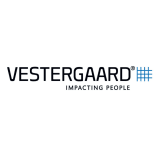
Vestergaard Sarl
About
Vestergaard Frandsen is a Europe-based international company specialising in complex emergency response and disease control products. It is guided by a unique Humanitarian Entrepreneurship business model, whose "profit for a purpose" approach has turned humanitarian responsibility into its core business.
Vestergaard Frandsen develops innovative products that prevent the transmission of waterborne and vector-borne diseases in developing countries. They are especially interested in addressing a class of diseases called the Neglected Tropical Diseases (NTDs), which kill many of the most vulnerable people on Earth.
Their commitment to the United Nations Millennium Development Goals (MDGs) drives their business objectives and provides the impetus for their continued focus on saving lives. They strive to develop disease-prevention interventions, which when implemented with their dedicated partners, contribute to the realisation of the MDGs. They are especially interested in addressing Goals 4 (reduce child mortality), 5 (improve maternal health), and 6 (combat HIV/AIDS, Malaria and other diseases), which play a critical role in the achievement of the MDGs.
By innovating products and concepts focusing on preventable diseases like malaria, diarrhoea, HIV/AIDS and neglected tropical diseases, they turn their commitment into action. They innovate for the developing world, rather than developing products for wealthier regions, and then trying to adapt to those who actually need them the most. This is a large part of what separates Vestergaard Frandsen from other companies working in public health.
Their products and concepts under the brand names PermaNet®, LifeStraw®, ZeroFly®, ZeroVector® and CarePack® have the potential to revolutionise health management as they know it, fighting preventable diseases and saving lives.
Vestergaard Frandsen works with a multitude of local partners to provide the exceptional service of delivering products to in-country destinations rather than simply shipping them to the container port, as is the case with most other suppliers. They have developed a distribution network across the African continent, establishing delivery channels for deeper penetration inlands.
Experience
Company Offices
- Switzerland (headquarters)
- Lausanne
- Vestergaard Sàrl Place Saint Francois 1
- Viet Nam
- Hanoi
- 9/253 Minh Khai Street Hai Ba Trung District